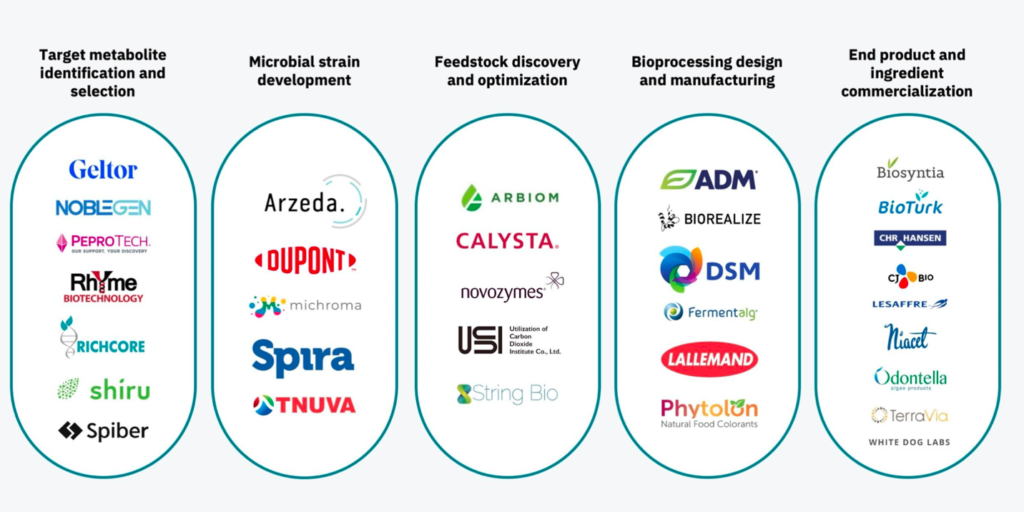
In 2020 fermentation became the “third technological pillar of the alternative protein revolution,” alongside plant-based and cultivated proteins, according to the Fermentation State of the Industry Report from GFI.
Fermentation involves “cultivating microbial organisms for the purpose of processing a foodstuff or food ingredient; obtaining more of the organism itself as a primary source of protein; or deriving specialized ingredients, such as flavorings, enzymes, proteins, and fats, for incorporation into plant-based products or cultivated meat.”
There are three primary ways of using fermentation in the alternative protein industry:
- Traditional fermentation (think bread and beer) uses intact live microorganisms to modulate and process plant-derived ingredients.
- Biomass fermentation leverages the fast growth and high protein content of many microorganisms to efficiently produce large quantities of protein.
- Precision fermentation uses specially designed microbial hosts to produce specific functional ingredients.
More than 80% of the companies developing ways to use fermentation for alternative proteins have formed in the past five years. The report identified at least 51 companies (23 in the U.S.) in the sector: seven traditional fermentation companies. 21 biomass companies, and 23 precision fermentation companies. Thirteen dedicated startups launched in 2020, despite the constraints of COVID-19, and fermentation companies raised $587 million, double 2019 investments.
Products
Impossible Foods uses precision fermentation to produce the company’s leghemoglobin ingredient. Other examples of products developed using fermentation:
- Mycorena’s fungal protein Swedish meatballs
- Planterra’s line of products containing pea and rice protein fermented with shiitake mycelia
- Noma’s fermentation-enabled quinoa tempeh burger
- Quorn’s mycoprotein-powered chicken
- Meati Foods’ line of whole-cut steak and chicken products made using submerged fermentation
- Prime Roots’ mycoprotein-based animal-free bacon, chicken, pork, and beef products
- Noblegen’s powdered whole-egg replacement
- Clara Foods’ animal-free eggs
- Moocho’s line of dairy-free cheese shreds with fermented cultures and fava bean protein
- Perfect Day’s animal-free ice cream using recombinant whey protein
- Odontella’s structured salmon analogue made using seaweed and microalgae
Companies with fermentation initiatives for animal-free meat, eggs, and dairy
Source: GFI Fermentation State of the Industry Report
The path forward
GFI expects 2021 to bring more research and development breakthroughs and another record-setting year of fundraising. One breakthrough is a microalgal heme ingredient for plant-based meat, announced by Back of the Yard Algae Sciences in early 2021. This ingredient will potentially allow companies to make products with the “bloodiness” pioneered by the Impossible Burger.
Companies will increasingly offer hybrid products containing both fermentation-derived proteins and plant and animal cell components. “Companies operating at the intersection of the three alternative protein categories will enable a new wave of paradigm-shifting meat, egg, and dairy products and ingredients that meet consumer expectations for taste, price, functionality, versatility, and variety,” states the report.
The 2020 cash inflows will accelerate industry activity and capital expenditures for production facilities and expand skilled science and engineering teams. This growth will allow industrial bioprocesses to increase in scale, companies to develop new products, feedstocks to diversify, and more companies to emerge. The result will be better quality and price of end products, which will drive further adoption.










